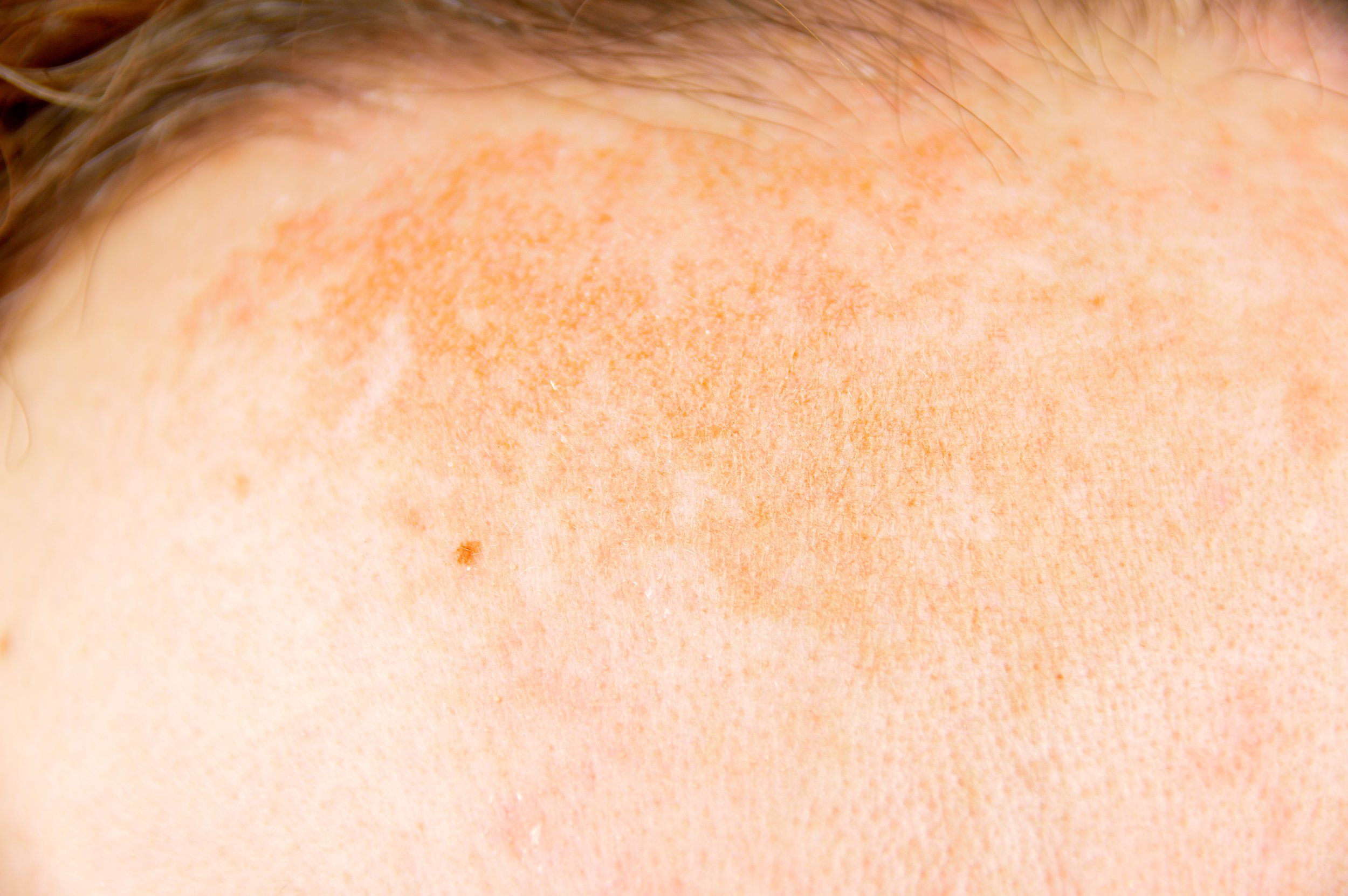Melasma is a common skin condition characterized by the appearance of brown or gray patches on the skin, most commonly on the face such as the forehead, nose, cheeks, chin, or above the lips. It can also affect other body parts exposed to the sun, like the neck and arms. Women are more susceptible to melasma than men, especially during pregnancy, which is sometimes referred to as "the mask of pregnancy."
The cause of melasma is not fully understood, but it is believed to result from an overproduction of melanocytes, the skin cells that produce color. People with darker skin tones are more likely to develop melasma, and it can also run in families. Exposure to excessive sun, hormonal changes during pregnancy, and certain medications can trigger or worsen melasma.
When seeking a melasma evaluation, board-certified dermatologists at Lumos Dermatology® will conduct a comprehensive examination of your skin. The diagnosis may be made by simply observing your skin, but a Wood's lamp examination may also be performed to assess the depth of pigmentation, using ultraviolet light. The dermatologist may also take a skin sample to rule out other causes of pigmentation.
Melasma may fade over time, but if the dark spots persist, Lumos Dermatology® can provide a treatment plan to improve your skin tone. Common treatments include topical creams such as hydroquinone to lighten discoloration, and tretinoin or corticosteroid creams to enhance the skin-lightening effects. For melasma that does not respond well to topical creams, the team at Lumos Dermatology® may suggest the use of the Cutera® enlighten® laser system, which uses picosecond laser technology to break up the pigmentation and restore skin tone. To learn more about melasma and available treatments, contact Lumos Dermatology® today by phone or online.

